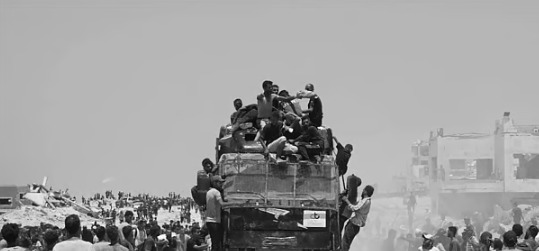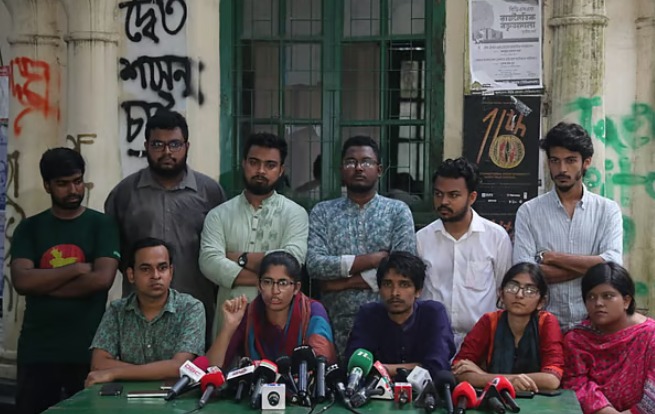Desk Report,
The New York Times is engaging in ‘genocidal journalism’ about Gaza
This may sound harsh, but there is a huge discrepancy in the accusation of genocide against Israel in Gaza. Suppose, if Israel’s intentions and actions were truly genocidal; that is, if they were so intent on wiping out the people of Gaza, why weren’t they more planned and much more lethal?
The New York Times is engaging in ‘genocidal journalism’ about Gaza
Why isn’t the death toll in the millions? Why is the death toll limited to 60,000? And this number comes from the Hamas-controlled Gaza Health Ministry. And this number comes from the Hamas-controlled Gaza Health Ministry, which doesn’t distinguish between fighters and civilians.
It’s not that Israel couldn’t have caused more destruction. They are the most powerful military force in the region. They have become even stronger after destroying Hezbollah and weakening Iran. They could have dropped bombs without warning if they wanted to, but usually the people of Gaza are told in advance which areas will be attacked. They could have simply carried out airstrikes without putting their own troops, many of whom have been killed in the war, at risk. It is not that the Israeli hostages in Gaza have deterred them from attacking. Israeli intelligence knows very well where these hostages are being held, which is one reason why, with a few exceptions, not many of the hostages have died. And they know that Hamas is keen to keep the hostages alive.
Israel is also not short of diplomatic support. US President Donald Trump has publicly said that everyone in Gaza must leave the territory and has repeatedly warned that “hell will descend” on Gaza if Hamas does not release the hostages.
So the question arises: should those who accuse Israel of genocide first say why the death toll is not higher? The answer is very simple: because Israel is not committing genocide.
The word ‘genocide’ has a specific legal and moral interpretation, which, according to the United Nations definition, is the intent to destroy, in whole or in part, a national, ethnical, racial or religious group.
The words ‘intent’ and ‘as a group’ are important here. Genocide does not simply mean the killing of many civilians. Rather, it means the attempt to wipe them out simply because they were members of a group—as Hitler and the Nazis killed Jews simply because they were Jews, or the Hutus killed Tutsis in the Rwandan genocide.
It is true that the destruction in Gaza is much greater. Israel, on the other hand, is a victim of war, although millions of civilians died in the bombings of Hamburg and Dresden in Germany during World War II. They were not victims of genocide. Because the Allied Powers’ goal was not to destroy the German people, but to defeat the Nazis.
Israel’s critics point to the massive destruction that has taken place in Gaza. They also point to inflammatory statements by some Israeli politicians that portray the people of Gaza in a dehumanizing manner.
But these angry comments after Hamas’s horrific attack on October 7th are not comparable to Nazi genocide plans (such as the Wannsee Conference). And I know of no evidence that Israel is systematically killing Gazans. But it is true that the destruction in Gaza is much greater. One can question the tactics that Israel is employing—especially in the food supply chain, where it has sought to wrest control of food from Hamas. There are very few militaries in history that have not committed war crimes in some war or another. Israel is on that list.
But errors in aid distribution, overly sensitive troops, wrong targets, or vindictive politicians’ statements—these do not prove ‘genocide’. They are part of the natural tragedy of war.
What is special about Gaza is that the way Hamas is fighting is utterly criminal and cold-blooded. For example, during the Russian invasion of Ukraine, civilians took refuge in bunkers, while the soldiers fought from above. But in Gaza, it is the opposite. There, Hamas sheltered in tunnels, while civilians lived above.
Here is a point to consider: What would the United States have done in the same situation? In 2016-17, the United States, under Obama and Trump, helped the Iraqi government liberate the city of Mosul. The city had been under ISIS control for three years and had become a fortress full of tunnels.




